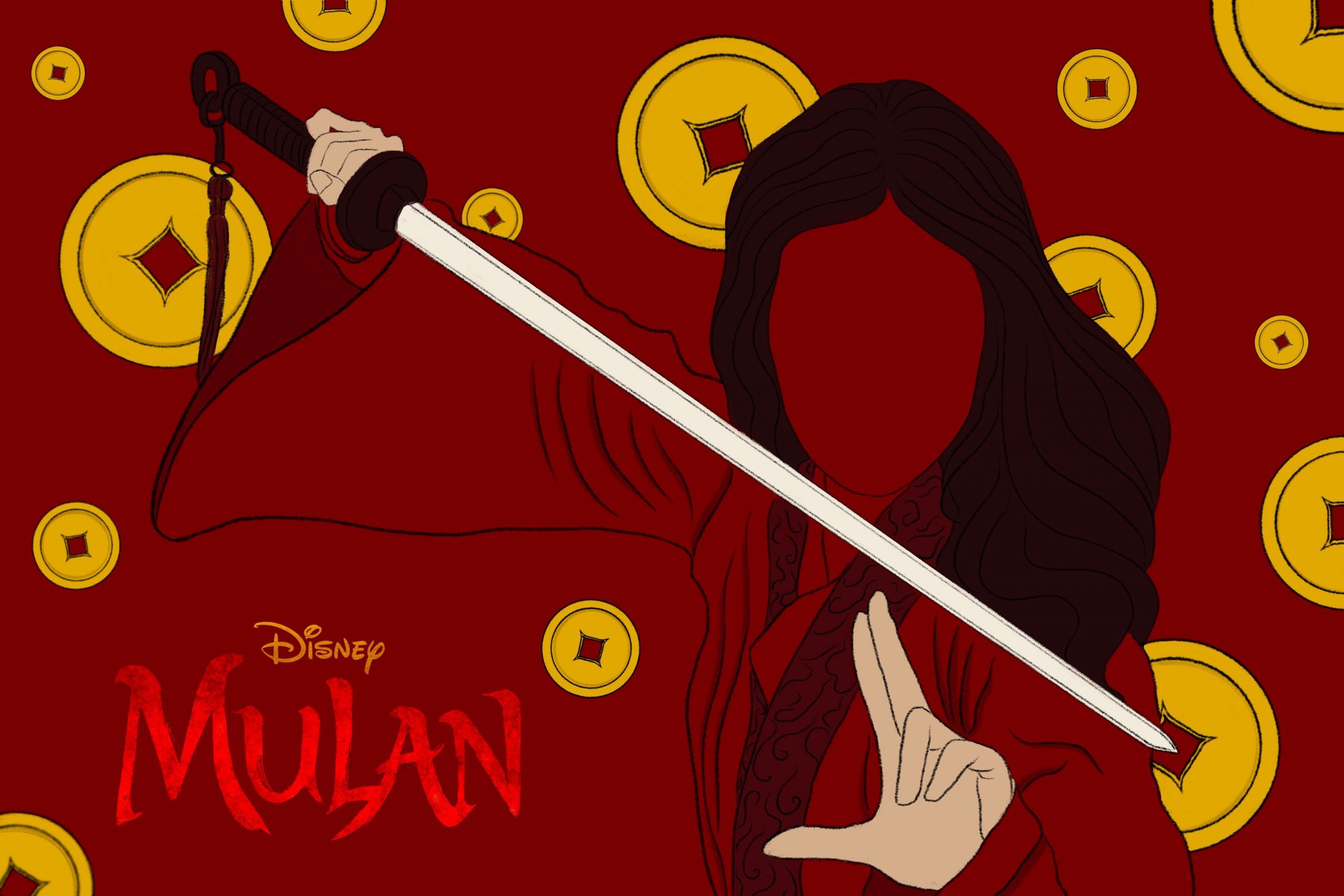Back in early March of 2020, before the global coronavirus pandemic effectively turned everyone’s lives upside down, the buzz for the new live-action “Mulan” movie was about to come to fruition with the film set to open in theaters on March 27.
Obviously, that didn’t happen.
But the hordes of people who were waiting anxiously for the arrival of “Mulan” were assured that the movie would still have its wide theatrical release — they just had to wait a few more weeks. And then a few more weeks. And now, in late August, “Mulan” has still not been released to the public, though we finally have a definitive release date — and it’s far from the original plan.
“Mulan” will be released exclusively on Disney+ on Sept. 4, but it will cost viewers who already pay for the Disney streaming service an additional $30 to see it.
While the $30 may seem a little steep for a movie being released on a streaming service that already costs $7 a month, or $70 a year, it makes sense that Disney is still trying to cash in on what was supposed to be one of their biggest film releases of the year.
The one-time $30 payment purchases the movie on Disney+, meaning buyers can stream the film over and over once they’ve paid. Not to mention, it’s inevitable that big groups of family and friends will get together to watch the movie, meaning what would have cost each person around $10 per ticket in theaters is now only $30 for unlimited viewing for an unlimited number of people.
Still, some of those who were initially excited that “Mulan” was being released to the public via a streaming service were outraged when they discovered the price.
Twitter user Matthew Penalva tweeted, “GOD I really wanna see the new Mulan movie!!! But not enough to pay $30 for it!”
GOD I really wanna see the new Mulan movie!!!
But not enough to pay $30 for it!— Matthew (@Penalva_m_) August 22, 2020
Others brought attention to some public scrutiny that both the cast and creative team of “Mulan” have faced over the past few months.
Twitter user Chris Wapdy tweeted, “Family is skipping this one. Cannot watch a Mulan who supports #PoliceBrutality against freedom protesters. Just not what the real Mulan would do. and $30 + membership fee to watch is just too steep.”
Family is skipping this one. Cannot watch a Mulan who supports #PoliceBrutality against freedom protesters. Just not what the real Mulan would do. and $30 + membership fee to watch is just too steep. pic.twitter.com/VeFtJjurtD
— ChrisWapdy (@ChrisWapdy0305) August 21, 2020
The initial controversy — though it was more of a collective disappointment for fans of the original animated movie — came back after the first trailer was released in 2019 and it was announced that the live-action film would have no singing and would not include the characters of Mushu, a talking dragon spirit that helps Mulan along her journey, or Li Shang, Mulan’s commander and eventual love interest.
The more pressing controversy came after the movie’s lead, Liu Yifei, voiced her support for the police in Hong Kong during anti-government protests where many stated the police used excessive force on demonstrators. In a time when police brutality in the United States is on everyone’s minds, thousands of people took to Twitter and other social media sites to renounce their support for Yifei and the “Mulan” movie.
The hashtag #BoycottMulan was trending on Twitter after Yifei initially shared a post by a Communist Party newspaper in support of the Hong Kong police, and is still being used now.
And while the actors on screen in “Mulan” provide a good example of Asian representation, some have accused the creative team and behind-the-scenes crew of not being diverse enough. An article by Keshav Kant spoke about how he was disappointed that those behind the camera still skewed white.
“We were promised that this remake would be a departure from the animated movie’s orientalist roots and a more accurate-to-origin retelling of the Chinese legend and folksong, The Ballad of Mulan, which the movie is based on. But seeing a whole host of white people parade onto that carpet and enjoying their time in the spotlight made it feel hollow,” he wrote.
The “Mulan” crew includes a white director, a white costume designer, a white composer, a white cinematographer, a white film editor and a white casting director, leading some to believe that creating an authentic movie about a Chinese story would be impossible.
Kant also went on to criticize the decision to remove Li Shang from the movie.
“A highly controversial announcement about the remake was the studio’s omission of Fa Mulan’s commanding officer and love interest, Li Shang — a character that was instead split into two platonic roles. The reasoning behind this decision was the #MeToo movement, with producer Jason Reed saying, ‘having a commanding officer that is also the sexual love interest was very uncomfortable and we didn’t think it was appropriate’. I am disgusted by how a beautiful love story that focused on the woman taking control and allowed her to lead the relationship’s development is disregarded as a flippant justification for a creative decision made by white people who clearly don’t understand the story’s nuance.”
Despite the host of issues the “Mulan” live-action remake has faced since its initial announcement in 2019, many are still looking forward to Sept. 4, when they can finally watch something they’ve been waiting for since March.
And, if you’re the kind of person who likes to look on the bright side, Christina Aguilera released a new music video and re-recorded her song “Reflection” from the original “Mulan” soundtrack. So, at the very least, one great thing came out of Mulan 2020.
















